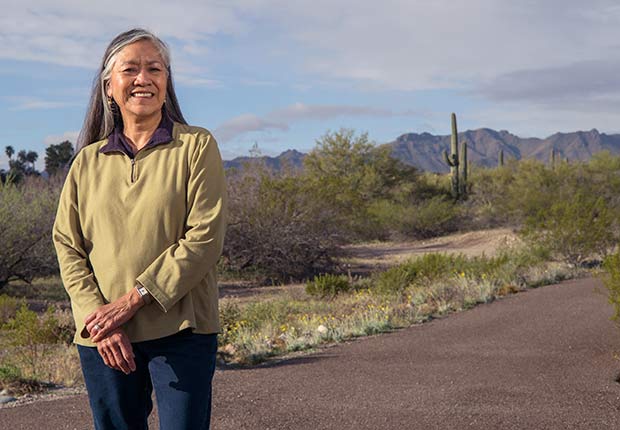AARP Eye Center

By Miriam Davidson
Retired nurse practitioner Hope Busto-Keyes believes in conserving energy.
“I jumped on the bandwagon in the ’70s,” the Tucson resident said. “Turning the lights off, and little things like that.”
Last year, as a customer of Tucson Electric Power (TEP), Busto-Keyes, 63, wrote a letter to the Arizona Corporation Commission, the state board that regulates utility companies, urging commissioners to support TEP’s plans for energy efficiency standards and customer rebate programs.
Now, Busto-Keyes and other advocates worry that their successful efforts could be reversed. TEP and two other Arizona electric companies, which together serve about 75 percent of households in the state, are proposing to sharply increase base rates, impose “demand” charges and raise other fixed costs.
Together, the proposals could make it harder for people to lower their bills through conservation.
“We should be encouraging people to conserve more, not less,” Busto-Keyes said.
She participates in a broad coalition of environmental, faith-based, consumer, advocacy and other organizations, including AARP, that are working to prevent hikes in utility base rates and other fixed costs that usually hit low-income people hardest.
National bellwethers
TEP, for example, is proposing to double its monthly customer service charge from $10 to $20. UniSource Energy Services (UES), which is owned by the same company and serves parts of northern and southern Arizona, is seeking mandatory demand charges for all residential customers.
Under demand charges, a surcharge is added to the monthly bill based on the highest energy use during peak periods, which vary seasonally.
Critics contend that demand charges may work for commercial customers, which have the technology and ability to schedule heavy electricity use for off-peak hours, but not for average households, which often lack that technology and may be unable to determine when peak hours occur.
Joseph Barrios, spokesman for TEP and UES, said the utilities want the changes “so our rates more closely match what it costs to provide services.” He noted that both utilities offer ratepayer assistance and other programs to help low-income customers and energy efficiency programs for all customers.
The two cases, plus plans for similar increases by Phoenix-based Arizona Public Service (APS), the state’s largest utility, (which serves the Phoenix area), are national bellwethers for the issue of mandatory demand charges, said longtime AARP energy consultant John Coffman.
No state currently allows electric or gas companies to institute mandatory demand-charge plans for all residential customers, although some, including Arizona, allow companies to offer these plans on a voluntary basis.
Last year, AARP and other groups successfully helped reduce or reject proposed rate increases in numerous gas and electric rate cases nationwide.
Pat Quinn, 67, of Phoenix, is a former utility company executive and former director of the Arizona Residential Utility Consumer Office (RUCO), which represents residential consumers’ interests before the ACC, from 2013 to 2015 turned consumer activist. Quinn uses the APS voluntary demand-charge plan. His surcharge runs between $33 and $151 a month, and he doesn’t like it. “We’re going to get off of it,” he said.
AARP supports keeping utility rates affordable, Coffman said, but imposing a mandatory demand charge would raise many customers’ bills without significantly improving the utility system.
He suggested there are better ways to ensure that solar customers, for example, pay their fair share than changing the basic rate design for all customers.
The commission is expected to decide the UES case soon. Hearings on the proposed TEP rate increases are set to begin Aug. 31. Hearings for the APS rate requests have not yet been scheduled.
To submit comments on these cases, go to the corporation commission comments page or call 602-542-4251 or 800-222-7000 if calling outside the Phoenix Metro area.
To get involved in utility advocacy, call the AARP Arizona office at 866-389-5649 toll-free or go to aarp.org/az.
Miriam Davidson is a writer living in Tucson.























































